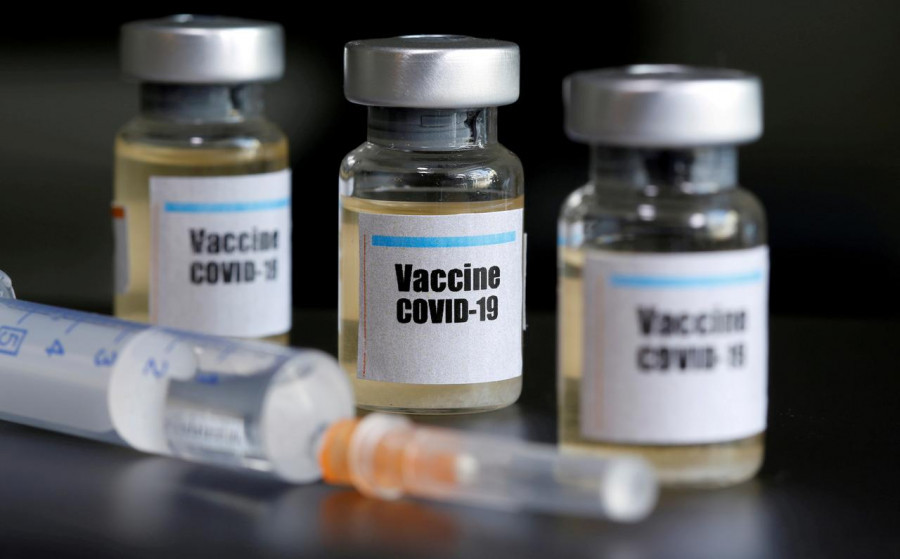Editorial
Much ado about vaccine
Nepal must put in place an effective vaccine policy so as to ensure total coverage.
The whole world today is at war, but together against a common enemy. The Covid-19 pandemic has brought an unprecedented challenge to humanity. The number of infections is soaring–and so is the number of deaths. It’s a race against time, as countries like the United States, China, India, the United Kingdom and Russia, to name a few, are scrambling to find a vaccine for the coronavirus. There is no clarity yet as to when the first sure shot vaccine will be available for the larger populations. And for a country like Nepal, even if the vaccines become available, having the shots here for the general populace almost immediately could be a pipedream.
Amid this, last month the government said at least three countries–the United Kingdom, Russia and China–had expressed their interest to conduct Phase III clinical trials of their vaccines in Nepal. However, there was no word from the government on further developments, if any. Then, on Tuesday, reports suggested that Russia would supply 25 million doses of Sputnik V, the vaccine Moscow claims to have successfully trialed, to Nepal. Government officials expressed their ignorance about such a development. According to a press statement by the Russian Direct Investment Fund, Russia's sovereign wealth fund, the vaccines would be made available to Nepal through a private health care firm–Trinity Pharmaceuticals.
Multiple officials, from the foreign to the health ministries, the Department of Drug Administration and the Nepal Health Research Council, told the Post that they had no idea about Russia supplying the Covid-19 vaccines to Nepal. Russian President Vladimir Putin announced last month that Russia became the first country in the world to approve a vaccine against Covid-19. According to a report in the New York Times, global health authorities had pointed out that the vaccine had yet to complete critical, late-stage clinical trials to determine its safety and effectiveness. How Russia–or its sovereign wealth fund for that matter–managed to reach a deal with what has been described as a leading private firm in health care is unclear.
When the government last month said it would allow foreign companies to conduct Phase III clinical trials in Nepal, the Post in this space argued that the authorities must consider ethical guidelines and protocols before granting approval for the trials. But in a sudden twist of events, it looks like a private firm has been roped in by Russia to supply the vaccines, about which the world and the global scientific community knows nothing. It’s shocking that the government is in the dark about it.
The government, as a matter of fact, should be taking the lead and talking to countries that are leading the race for Covid-19 vaccines, so as to make the shots available for its citizens. The Oli administration has, by and large, failed in its fight against the coronavirus. As we are into nine months since the first case was reported in the country–with 77,817 infections and 498 deaths as of Wednesday–the government seems to have given up the fight against the disease.
Nepal must put in place an effective vaccine policy so as to ensure total coverage. Nepal’s universal immunisation programme for children has been quite successful. Given past success stories when it comes to vaccination, it won’t be wrong to assume that Nepal does possess the required knowledge and system to ensure vaccine delivery. The government must step up efforts to ensure that it brings the vaccine whenever it is available. It is incumbent upon the government to ensure that a fully tested vaccine is made available to its citizens. The government cannot shirk its fundamental duty towards the people.




 14.24°C Kathmandu
14.24°C Kathmandu














